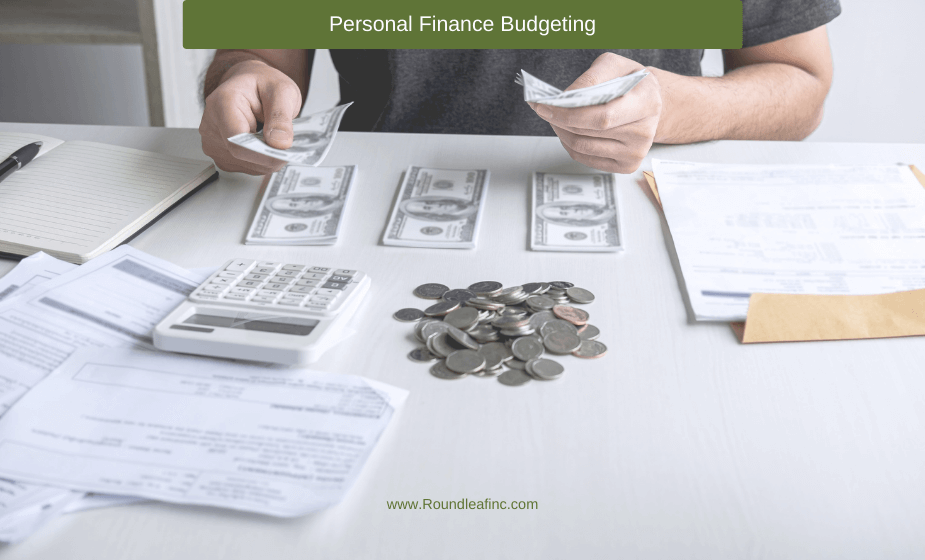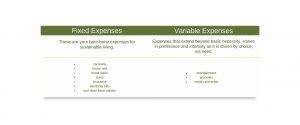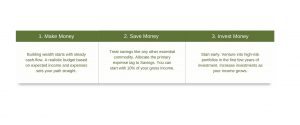4 Steps to Writing a Personal Finance Budget

Do you have a personal budget plan? A financially sound mind is better equipped to deal with day-to-day struggles, lead healthy lives, and prepare for a better future. It takes away your singular money-mindedness and opens you up to newer and more significant life experiences. But we all know this. However, we still spend all, never save enough money, and forget to enjoy the little moments. We are living life – one paycheck at a time. And with an attention span of a goldfish, it’s tough to look even one day ahead of us – forget a month or a year.
No wonder we are at a constant stage of a crisis.
Lest that not be the fate for our dearest and essential finances, we need to start tracking. In a world where there is more money chasing around a lesser number of things, your personal budget is the friend you need today, desperately.
Build your own effective personal budget:
- Why You Need a Budget?
- How Do You Set up a Budget?
- Should You Hire Help to Set a Budgeting Plan?
- What is a Budget Review?
- Is a Weekly Budget or a Monthly Budget Better?
- How Does Your Financial Future Look?
Why You Need a Personal Budget
The reason why we don’t budget is the same reason why we should. You don’t want to know how much extra money you spent on the bar tab, or how much your last shopping spree cost – but you should. Over-spending or poor financial decisions are hardly ever a conscious decision until later. Overspending can and does put a financial strain on us in the worst opportune moments.
Financial planning is key to living a debt free lifestyle. Think of a personal budget as a spending plan, rather than a plan to restrict your spending habits. Having a monthly personal budget will allow you to determine how much money you have coming in each month and where you will allocate that money.
 Benefits of Using a Personal Budget
Benefits of Using a Personal Budget
- It is the reality-check to your dream-come-true. The big dreamboat isn’t going to buy itself. The more you budget, the closer you are to your savings goal. The budget actually keeps you focused on the task, and you are unlikely to be led astray by every shiny object that comes down the road.
- It stops you from spending money you don’t have. Before plastic cards, people had a better understanding of living within their means. Now everything is in the wind. Credit card debt is a prime example. Americans owe trillions of dollars to credit card companies. And it gets stressful when you can’t pay them.
- It helps you sleep like a baby. Knowing that you have control over your money and not the other way around is a big relief. Financial sanity is a way of life. A conscious mind is highly unlikely to be plagued by impulsive financial choices. Bye-bye, overspending!
- It is the first step to everything special. A budgeting system builds up your appetite for more complex financial decisions. Decisions that will make real money from what you already have. You can start working on building a good credit reputation and enjoy the perks of becoming a financially sound citizen.
It’s Never Too Late to Start
The bartender may not allow you to add more tab, and you may have established yourself as an ardent shopaholic – but you will always be the best person to sort out your financial problems. So just sit down with a pen and paper and start working through it. While you can’t whisk away all your troubles at once, the trick is to start small.
Setting up Your Personal Budget in 4 Simple Steps
Sit on the table with a glass of water. Drink. Take a deep breath. Write down your first expense. I wish it was that easy!
Americans, on average, have at least 15 different finance accounts under their names. This includes equity, debt, credit, savings, and a lot of other options. You also have your cash expenses and income to account for.
Keep that glass of water close as we break down the steps of creating an effective budget for you. But before getting into that, you have to know what you are doing exactly.
What do I get by doing this?
- Assign roles to every dollar you earn or save, so you’re clear about what you have vs. what you owe.
- Distinguish between truly essential, pseudo-essential, and non-essential expenses.
- Prepare for uncertainty without speculating it. Build emergency fund contingencies.
- Save for the long term and plan accordingly.
Now, back to the steps…
STEP 1 | List Expenses & Means to Pay
The first step for creating an actionable personal budget is to know the cause behind your prevailing financial crisis. The best way is to figure out your cash flow. Follow the trail to see where your money is going and where you are paying it from.
- List all your monthly expenses and incomes on two different sheets.
- Tally them. See which income (or savings) pays for which expense.
Know your expenses through and through:

STEP 2 | Reset Financial Goals
Your budget should have three distinct objectives: 1) capital protection, 2) sustainable income, and 3) future growth. You need to re-allocate and re-distribute your wealth based on your immediate and long-term priorities. If you are in over your head with debts, then that’s where you should start.
Debt-to-Income Ratio:How do you know whether the debt is too much? You measure it by dividing your total monthly payments by total monthly income and take a percentage: the debt-to-income ratio. Any number below 15% is manageable, 10% being ideal for long-term debts.
Debt-to-Credit Utilization Ratio: Mostly used for credit card debts, this is the percentage of debt you have already borrowed from your credit limit. It gives an idea of how much external help is available to you if things go south.
- Add Savings to your fixed expense list.
- Re-allocate assets to match credit payments.
Transform your financial goals into wealth-building strategies:

STEP 3 | Economize Reasonably
Then comes the hard part. The moment of truth, when you acknowledge your excess spend and cut it off. If it’s hurting too much, add a buffer section in the expense list to put all that you can’t let go. Leave it for the next day, and then decide. Impulsive or essential – you’ll know.
Pseudo-Essential Expenses: These are expenses close to your heart and your wallet. What you pay is rarely proportional to the value they bring, like “pure organic” groceries, “premium” cable, “ultra” high-speed internet, and more. The goal is to reduce these expenses or move them to the non-essential column gradually.
- Relist your expenses in another sheet, in order of essentiality this time.
- Reduce non-essential expenses until all financial goals have been accommodated.
Add buffer expenses into the pseudo-essential section.
| Type | Payment for… | Current Cost | Reduced Cost | Payment Date | Pay to… | Pay from… |
| TRULY ESSENTIAL | Rent | $XXX | NA | XX/XX | Payee Name | Bank A/C number |
| Electricity | $XXX | NA | XX/XX | Payee Name | Card No. | |
| … | … | … | … | … | … | |
| PSEUDO ESSENTIAL | Premium Cable | $XXX | $YY | XX/XX | Payee Name | Card No. |
| … | … | … | … | … | … | |
| NON-ESSENTIAL | $XXX | $YY | XX/XX | Payee Name | Card No. | |
| … | … | … | … | … | … |
STEP 4 | Follow Through
When you start building a need-based budget, you are bound to get it wrong the first time. We are so used to retail comfort. It may feel hard at first to count many of them as “non-essential” elements. The feeling that your life is reduced to a balance sheet is also justified. But you have a crisis in hand. It warrants sacrifices and discipline. While making the hard call, ask yourself: “what am I actually paying for.”
- Discipline your needs. Stick to the budget once finalized.
- Don’t add new lines of credit until your current debts are resolved.
Write an oath letter to yourself. Hang it on the wall.
|
|
NEVERAGAIN! |
Hi <Your Name>,
Hope you remember me. So sorry for putting you through such a rough year. Thanks for hanging in there. Promise me that you will NOT repeat my mistakes. <Sign Here> |
YEAR: 2020 |
Personal Budgeting Apps – Are They Good?
The young ones are smart. (Remember what happened to the new generation using plastic cards?) Google is their knee-jerk reaction to virtually everything. But searching for “budgeting apps” on the internet may get you a solution that you will regret. Rogue personal finance software can not only squash your aspirations but your delicate financial data too. Be careful.
What you should look for in a budgeting app
Finding trusted sources to recommend your budgeting tool is most important. It should have:
- Modest to high user base (with sizeable reviews in app stores, websites or otherwise)
- In-depth educational resources (on personal finance, tutorials on app and more)
- In-app purchases that don’t lead to opening new credits (credit card, bank accounts, etc.)
- Availability across all platforms and synced across all major financial institutions
- Additional support to import bank data files in all available formats (CSV, QIF, QPX, etc.)
Top 10 personal budgeting apps in the market:
- You Need a Budget (YNAB)
- Mint
- Toshl Finance
- Empower
- Wally
- EveryDollar
- Simplifi by Quicken
- Mvelopes
- Centsible
- PocketGuard
Common Questions Answered
What is a Budget Review?
Creating a budget is only half the job. Your main test is to apply and maintain it. The budget review is a reality testing exercise to analyze on-ground financial progress made due to the budget, in given intervals. Forbes mentions 90 days to be enough to adjust to a new budget. The first budget review should consequently happen then. Then determine if you need a weekly or monthly budget.
Is a Weekly Budget or a Monthly Budget Better?
While both have their unique advantages, weekly budgets are simply more confluent to the times. It’s not monotonous. The close-range view makes it easy to track down expenses and manage them, making your budgets look truly actionable. More frequent adjustments allow for more accurate projections.
Are you looking for help?
If help is what you seek, take it from professionals. Hire credit counseling agencies to help you create and manage your personal budget. Solve your financial crisis with exceptional debt management instruments aligned with a vision to build your credit reputation along the way. Start with a budget review.
How Does Your Financial Future Look?
A budget worksheet is not a crystal ball, but it is an important tool in your financial planning arsenal. You are more knowledgeable about your known and hidden expenses. You can decide whether to save or to grow your capital with your budget plan. But it only shows what you already know.
- You need to get over the vicious cycle of debts.
- Spending wisely will help you stay out of it.
- Saving first will lead you to a happy, healthy life.
- You need a budget to keep your financial goals on track.
A personal budget is more like a quantified visual representation of “you reap what you sow.” It has its limits. What it can do is hold up a mirror on your past spending habits and motivate you to better them.
If you need a better understanding and education in the nuances of personal finance, learn advanced budgeting techniques and ways to improve your credit score from Roundleaf’s Wealth and Resource Planning programs. Test your financial acumen right here!

 Benefits of Using a Personal Budget
Benefits of Using a Personal Budget